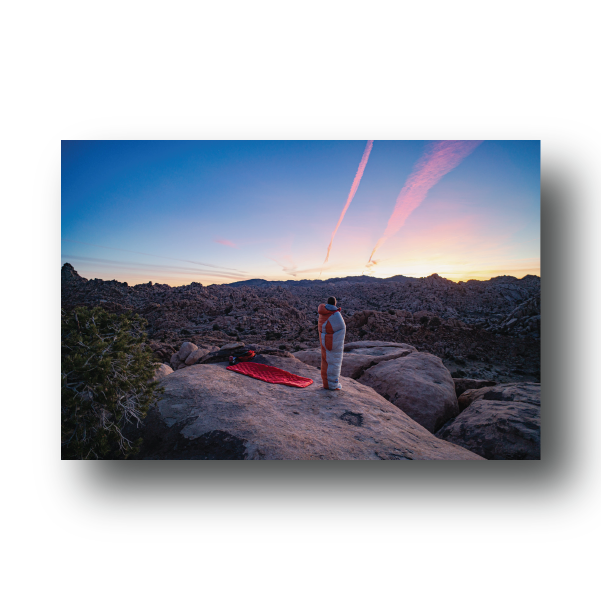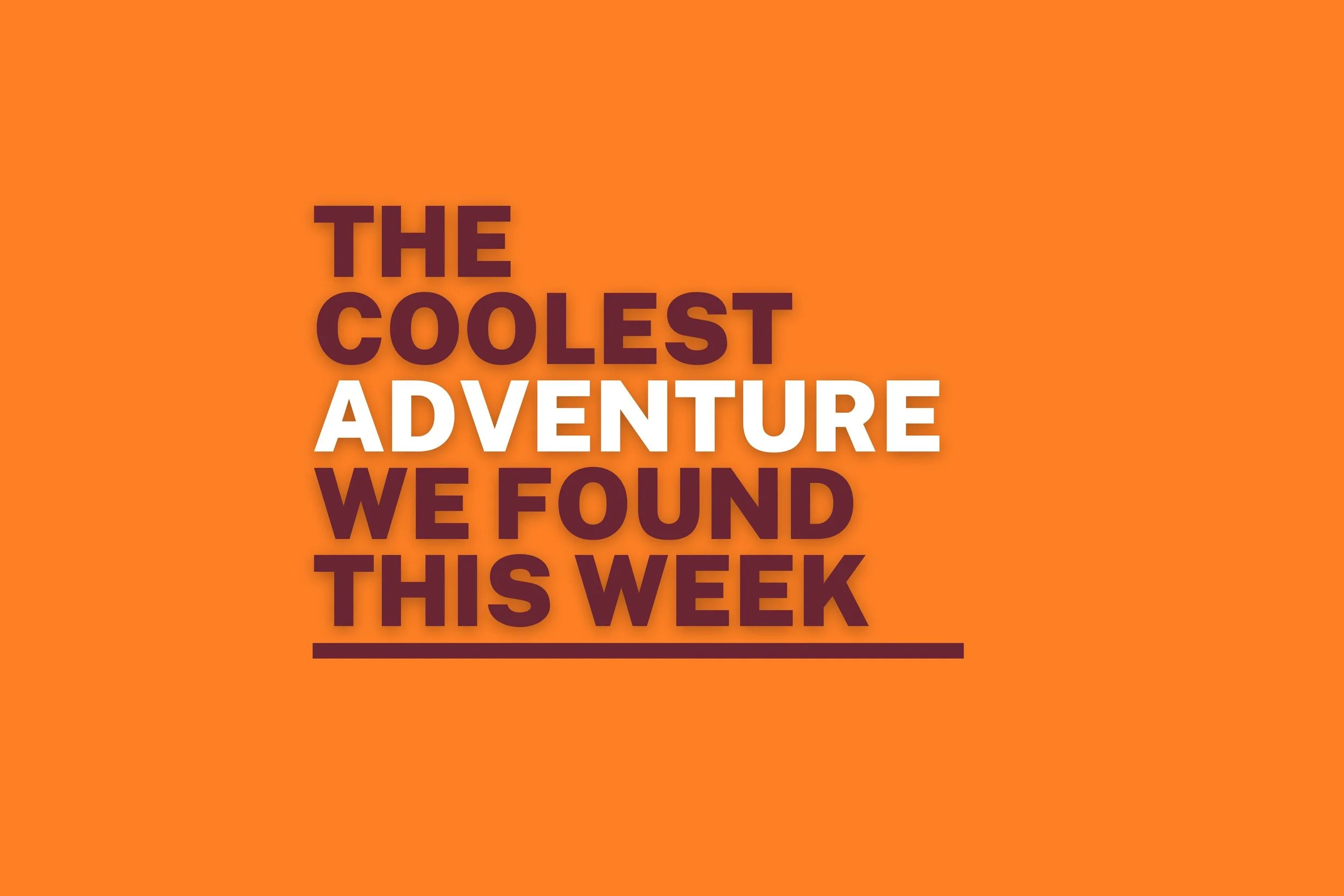Change Your Brain with Adventure Travel
Think of a time in your life, when you said to yourself, “Wow! That was exciting.” Or, “Gosh, that was scary for me!" What do you remember from that memory? Were you close to cliff’s edge, fatigued from exerting yourself, or were you overcoming a fear built up in your imagination? Hopefully, that memory was elective and an experience you can look back upon as type two fun. A learning lesson, a personal challenge, an opportunity to expand your horizon.
Fear is natural. Discomfort is natural. In small doses, fear and discomfort can be used to become a better person, a happier person. When faced with adversity, you become a resilient human. Capable of taking on great and greater challenges. As time builds, you’ll look back and proudly say, “Five years ago, I would have never been able to do that, now look at me.” As you understand how to challenge your limits, you will become bold. Maybe too bold, but that is okay. You will learn.
So, how do you learn to be a more bold human? Adventure.
To reach the seven summits, you need to climb Denali in Alaska. This is an adventure of a lifetime. Photograph by Dalton Johnson
Pros:
Personal Growth: Adventure travel pushes you out of your comfort zone, fostering personal development, increased self-confidence, and improved problem-solving skills.
Memorable Experiences: You'll create unforgettable memories and stories that will last a lifetime, enriching your life with unique experiences.
Cultural Immersion: Adventure travel often involves interaction with local cultures, providing a deeper understanding of diverse societies and traditions.
Physical Fitness: Many adventure activities require physical exertion, promoting a healthy lifestyle and fitness.
Natural Beauty: You'll have the opportunity to explore breathtaking natural landscapes, from pristine beaches to rugged mountains.
Bonding Opportunities: Sharing adventures with others can strengthen relationships and create lasting bonds with travel companions.
Stress Reduction: The thrill of adventure can reduce stress and provide a break from the demands of everyday life.
Cons:
Risk and Safety: Adventure travel can involve inherent risks, including physical danger, health hazards, and unpredictable conditions.
Cost: Adventure trips can be expensive, with costs for gear, guides, and specialized equipment adding up quickly.
Physical Demands: Some adventures require a high level of physical fitness, which may be challenging for individuals with limited mobility or health issues.
Time Commitment: Adventure travel often demands more time for planning, preparation, and execution compared to conventional vacations.
Environmental Impact: Certain adventure activities, such as off-road driving or extreme sports, can harm the environment if not conducted responsibly.
Cultural Sensitivity: Engaging with local cultures can be rewarding, but it also requires respect and cultural sensitivity to avoid unintentionally offending or disrespecting others.
Logistical Challenges: Navigating remote locations and managing logistics can be complex and time-consuming.
What is Adventure Travel?
Adventure travel is the embodiment of stepping beyond the boundaries of your everyday life. It's the thrill of venturing into the unknown, whether that means navigating a remote jungle, conquering a towering peak, or immersing yourself in a completely foreign culture. Unlike ordinary travel, adventure travel is about pushing your limits, embracing uncertainty, and savoring the excitement that comes with it.
Adventure travel isn't limited to just physical feats; it extends to all aspects of life. It can be embarking on a daring business venture, exploring your creative boundaries, or taking a leap of faith into uncharted territories. The essence of adventure travel lies in your mindset, in your willingness to ask yourself, "Can I do this?" and then taking that leap into the exhilarating world of the unknown. So, whether you're planning a thrilling expedition into the wilderness or diving headfirst into a new entrepreneurial endeavor, adventure travel begins where your comfort zone ends.
Where to Begin Your Adventure Travel Journey?
The starting point is at the edge of your comfort zone. When we choose to stay within the confines of our comfort zone, we limit ourselves to the familiar and the safe. While this can be beneficial for rest and recovery, it's essential to recognize that our comfort zones have a tendency to contract over time.
Imagine your comfort zone as a balloon you inflate and tie off. Initially, it remains full, but over time, if you don't occasionally reinflate it, it starts to deflate. This analogy illustrates that if you don't challenge yourself periodically, what was once easy can become difficult.
It's worth noting that if you push too far beyond your comfort zone and enter the panic zone, you risk bursting your balloon and having to start over. Therefore, finding a balance is crucial. Gradually testing the boundaries of your comfort zone allows you to expand your world without pushing yourself to the point of panic.
Adventure travel serves as an excellent means to stretch your comfort zone. Adventures are typically chosen experiences that present challenges you hope to overcome. Along the way, you may encounter adversity, but this is an integral part of the adventure. It's through these adventures that you'll learn to plan ahead, anticipate potential obstacles, and, most importantly, master the art of risk assessment. So, if you're looking to embark on a journey of self-discovery and personal growth, adventure travel is the path that will lead you to the exhilarating and transformative experiences you seek.
A Spectrum of Physical Adventures, From Modest to Monumental
Scale indoor rock walls at a local gym >> Click here for 10 tips on getting started rock climbing indoors
Embark on an epic global bicycle journey.
Brave the edge and stand near a towering cliff.
Conquer the Seven Summits, the tallest peaks on each continent. >> Click here to learn what the 7 summits of the world are
Test your speed and endurance with a 1-mile run.
Dive into the vastness of the ocean and swim in its embrace.
Defy gravity with an exhilarating skydiving experience.
Embrace change and move to a new town, a fresh start awaits.
Connect with nature by spending a night camping under the stars.
Challenge your limits by riding a colossal 50-foot wave while surfing. >> Click here to discover the big wave spots around the globe
Commit to a long-distance adventure and hike the Pacific Crest Trail.
Expand your social horizons and make a new lifelong friend.
Undertake the ultimate maritime challenge and row a boat across an ocean.
Master the art of traditional rock climbing, connecting with the earth's rugged beauty in a profound way.
How to Choose the Perfect Adventure for You
Selecting the right adventure is a highly personal endeavor, one that should align with your individual preferences and needs. Personally, I find solace in physical adventures to reset my mind and push my limits. Why? Well, as a content creator, my life revolves around digital pursuits, so engaging in analog experiences forces me to break free from my comfort zone. To embark on your adventure, begin by identifying where you feel secure and comfortable, then take gradual steps to discover the ideal adventure for yourself. Here's a structured approach to help you get started:
Identify Your Safe Space:
Jot down the places or situations where you feel most at ease and secure.
Daily Routine Reflection:
Document your daily activities and routines to gain a better understanding of your current lifestyle.
Face Your Fears:
Write down a fear you wish to overcome, a challenge that intrigues or excites you.
Connect the Dots:
Spend some time examining your notes and observe how your safe space, daily routines, and the fear you want to conquer relate to each other.
Start Small, Dream Big:
Begin your journey from your safe place, using it as the foundation to conquer your fear.
Incremental Progress:
Break down the process into manageable steps, taking baby steps to reach your goal.
For instance, if you aspire to overcome your fear of water and learn to swim, follow this process:
Safe Place: "I feel safe in my home."
Daily Routine: "I only immerse myself in water when I shower."
Fear: "I want to overcome my fear of water."
Now, think about what you could do to conquer this fear and set achievable goals to overcome your fear, such as:
Take a bath and practice holding your breath.
Visit a pool or beach and dip your toe in the water.
Gradually immerse yourself in a pool or beach, putting your head underwater.
Submerge your head underwater while keeping your feet on the pool or ocean floor.
Finally, consider enrolling in swim lessons to learn this invaluable skill.
By following these steps, you'll systematically bridge the gap between your comfort zone and your desired adventure, making your journey both attainable and rewarding.
From Adventure to Being Better Human
The final step to rewiring your brain with adventure is though transference. This is a fancy way of saying, taking a skill you learned from your adventure and applying it to your daily life. How does transference happen? Without you knowing. Yup, you read that correctly. For the most part, you will have no idea that the skills you learned will help you in your daily. I mean how does rock climbing help with copywriting? Let me give you a few ideas:
In rock climbing you build a routine of double checking for safety, much like editing and reviewing.
In rock climbing you learn how to mentally challenge yourself and overcome a crux, much like overcoming writers block or conveying a concept in words.
In rock climbing you have to plan your gear and route selection, much like creating a rough draft or outline for a written project.
Transference is the last step in become a better human and unlocking your brain with adventure. At first, you will think you are just out to have fun when you adventure, but after a while, you will realize that you are learning a great deal of skills that go beyond summiting a mountain. You’ll find yourself stuck on a problem at work, then realize you have been trying the say approach (or beta like rock climbing) and then try something a little different, then BOOM! You solved the work problem. This is what adventuring can do for you!
Overcoming the fear of water and heights while leaping off a rock into Phelps lake in Teton National Park. Photograph by Dalton Johnson
Using adventure to unlock your brain allows you to break through your daily struggles with ease. As you learn to push your limits outside of work, you will grow into a better you. Selecting the right adventure will challenge you physically and mentally. Remember, start small. Keep your balloon in tack, but make sure to continually put air into it. Adventures and transference are not an overnight process, the realization of a shift in your mentality might take a few years. Be persistent. Be curious. Be adventurous.











